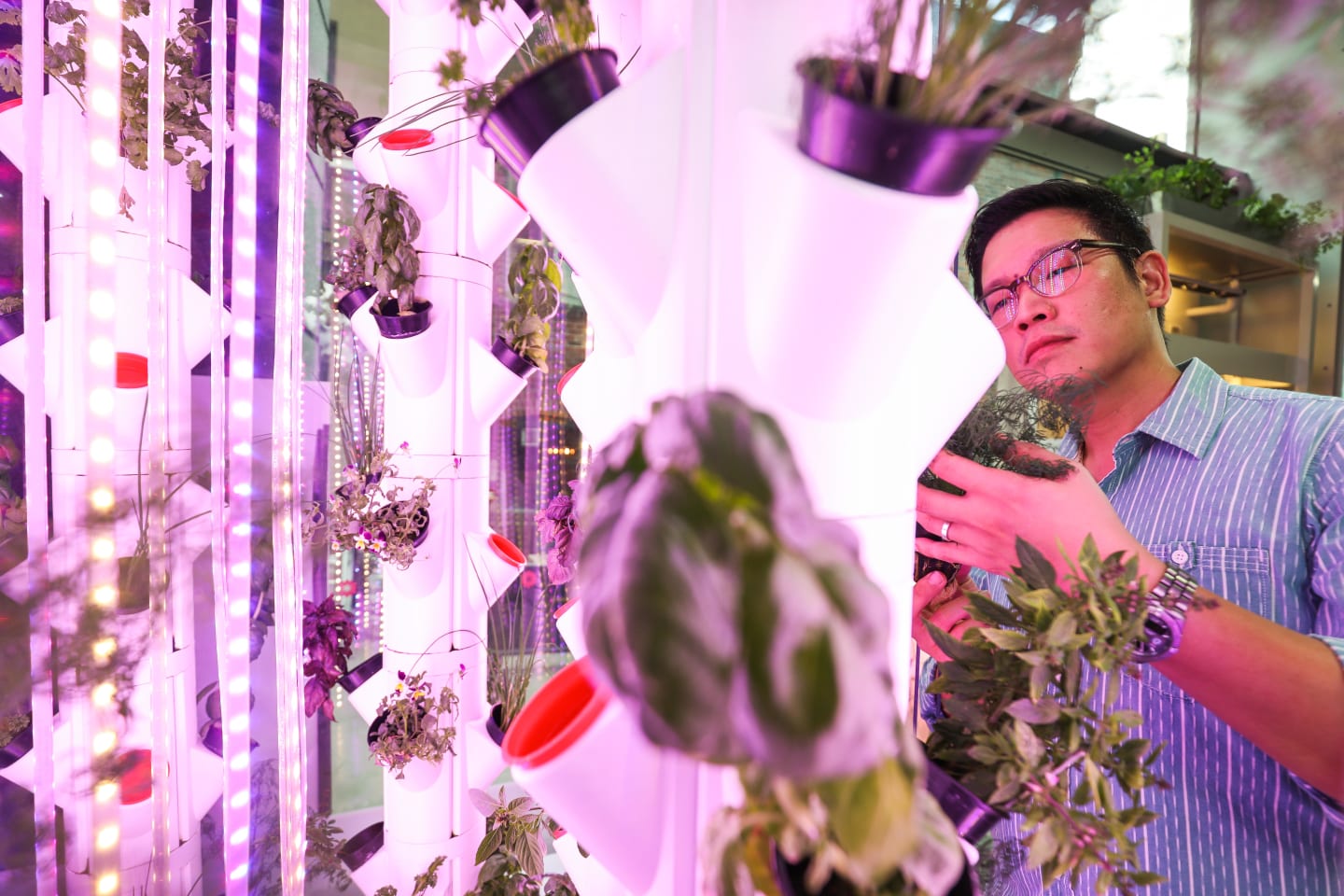High-yield produce gardens with next-to-no maintenance are set to enhance apartment living in Australia
Imagine growing 100-400 organic lettuces per lineal metre (a space of approximately 1.5m x 1.5m x 2.2m) in your apartment’s underused basement with almost no maintenance. Thanks to clever engineering, smart technology and horticulture experimentation, the future of modern farming is here – and it could be set to revolutionise apartment gardens in the near future.
Installing edible community gardens in apartment buildings help developers attain higher sustainability credentials as well as create a sense of community within the complex. However, often the produce-yield is meagre due to residents not having the time to tend to the communal garden. Sydney-based company Invertigro has designed two modular vertical planting units to be integrated within an indoor space with very low ongoing costs and minimal effort – making it the perfect solution for shared apartment gardens.
HOW IT WORKS
The system has been designed and engineered to be highly productive and easy to use, giving communities the autonomy to grow their own produce.
“[Inverticubes and Invertiwalls] are designed to enable communities and businesses alike to become successful modern farmers with little or no prior expertise and minimal intervention from planting to harvest.”
Ben Lee, CEO, Invertigro
Inverticubes can be installed in basements and disused car parking spaces while Invertiwalls are best suited for foyers and other communal indoor areas.
“We have also had significant interest from property developers to incorporate our farms in their mixed use (residential and commercial) developments - to supply residents and local businesses with fresh produce, meet sustainability goals, and help build a sense of community.”
Ben Lee, CEO, Invertigro
To accommodate the demand for residential products, the team have developed a smaller-scale green wall product which is both aesthetically pleasing and edible. This product can be integrated within all residential developments, commercial premises and food courts.
BETTER FOR YOU
Convenience
The automated and programmed control and monitoring systems deliver precise light, water and nutrient requirements for each set of crops to produce the perfect yield every time. All that is required of gardeners is to germinate and transfer the seedlings and harvest the crops when ready.
High yield
The system has the ability to grow food at commercial farming scale and modular units can be installed to increase crop production.
Health benefits
All crops are organic and free from herbicides and pesticides, providing a healthier alternative to the majority of store-bought produce. The ability to produce fruit and vegetables at scale will effectively reduce the cost to consumers, meaning more people will have access to affordable, healthy food options.
BETTER FOR THE PLANET
This innovative method of food production addresses some of the most pressing issues in agriculture and food production today. Some of the many environmental benefits include:
- Fewer transport emissions
- No runoff waste
- Less land acquisition, water and runoffs
- No herbicides or pesticides
- Less food wastage due to less “food miles” (time in transit to stores)
BETTER FOR THE COMMUNITY
In order to assess how edible community gardens can be integrated within the broader community, it’s important to consider placement and access. RMIT Associate Professor and urban planning specialist Wendy Steele suggested that many apartment gardens are “closed, premium spaces of exclusion and privilege” – meaning that only a small portion of the population benefit from the rewards of urban gardening.
“We urgently need innovative eco-city form and design such as vertical greening, but future visions of the green city must not just serve technological and/or economic ambitions but have eco-social fairness and equity principles at the core.”
Wendy Steele, RMIT Associate Professor and Urban Planner
This concept poses a unique opportunity for developers to give back to the community by installing community garden systems to be enjoyed by all.
A study by the Faculty of Built Environment at UNSW Sydney found that in-situ community gardens can also play a significant role in enhancing the health and wellbeing of residents. The study projected a rise in community gardens over the next few years,
“The importance of community gardens to Australian city dwellers is likely to grow as the trend for consolidated and densely populated urban areas increases... It is essential that urban planners and policy makers respond to the changing trends in residential living and open up the public sphere for community gardening.”
The Role of Community Gardens in Sustaining Healthy Communities article
Other findings from the study found that urban oases foster neighbourhood cohesion, and promote “physical, social, and mental wellbeing”.
The use of modern technology such as Invertigro is not only set to revolutionise agricultural practices, but also provides the chance to engage the wider community in food production, and deliver more affordable, fresh produce en masse.
“At InvertiGro our focus is on enabling rather than disrupting - we have been inspired and driven by the pursuit of ‘feeding the world the smarter way’.”
Paul Millett, COO, Invertigro
